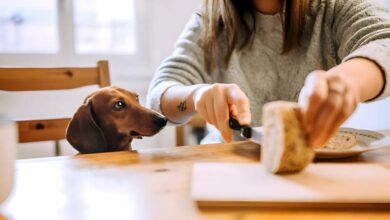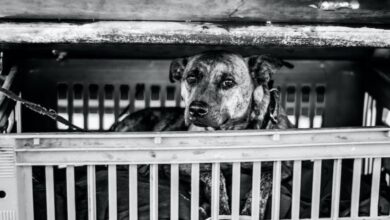Looking After Your Puppy A Basic Guide

Congratulations on getting a new puppy! Puppies are adorable and endearing and make great additions to your family. However, they require a lot of attention and care, especially in their first few months. They are babies, after all! This guide based on new puppy articles will give you the basic knowledge you need to take care of your new family member and ensure that they grow up to be the best that they can be.
Safe Place to Sleep
Puppies generally nap for short periods throughout the day but have a long sleep overnight. It can be tempting to have your cute little puppy in the bed with you. But, unless you plan to maintain this sleeping arrangement for the rest of their life, it is best to teach them to feel secure in their own space. Find a spot for them in your home that is away from electrical cords or accessible windows. Provide them with warm bedding that they can snuggle into. A crate is a good option as it is a safe and enclosed area. Getting them used to the crate at an early age will also come in handy in the future.
Good Nutrition
Just like with people, puppies need to eat a balanced diet to stay healthy. Growing dogs require more calories than adult dogs and should be fed accordingly. Choose high-quality food specially formulated for puppies. Avoid giving them table scraps that are oily, fatty, salty, or difficult to digest. There are many things we consume such as chocolate that are toxic to dogs so make sure that you educate yourself and your family members on what not to feed them. Also, be careful of the items that you leave within reach of your puppy as they may ingest them out of curiosity.
Vaccinations
Vaccinations are an important part of keeping your puppy healthy. Most vets recommend that puppies be vaccinated against common diseases before six months of age. Without the proper vaccinations, your puppy could contract serious illnesses such as parvovirus—which is often fatal—or distemper—which can leave them with permanent nerve damage. If you brought your puppy from a breeder or adopted them from a shelter, they may already have had some of their shots. Keep a detailed vaccination record and ask your vet to provide a recommended vaccination schedule for your puppy.
Grooming and Baths
Grooming is an important part of taking care of your puppy. Regular grooming can help maintain a healthy coat and reduce the risk of parasites. This is particularly important if you have a long-haired breed, such as a Pomeranian or Yorkshire Terrier. Long hair can quickly mat and become tangled if not regularly brushed. If you suspect that your puppy has a flea or tick problem, talk to your vet about treatment or preventative medication that is appropriate for your puppy’s age as some common medicines can be too harsh. Bathe your puppy regularly to prevent skin problems and to remove the dirt and mud that can irritate their skin.
Exercise and Play
Puppies need to play! Playing provides mental stimulation as well as helps them to grow muscles and learn boundaries. There are plenty of ways to play and exercise with your puppy. Take your puppy on walks and encourage them to run around in a safe area, like a fenced-in yard. You can also play with your puppy using a puzzle toy designed to help stimulate their minds and keep them entertained. Some puppies have longer attention spans while others need to be offered a variety of different activities. Remember that if you do not provide a healthy outlet for their energy, your puppy may turn to destructive behavior.
Socialization and Training
Socializing your puppy is key to helping them grow into a confident and friendly dog. They need to have exposure to new people, places, and animals at a young age so that they become comfortable in different environments. Training is also important to ensure that your puppy develops good habits and learns boundaries from an early age. You can enroll your dog in puppy school once they are fully vaccinated to help them socialize and learn basic obedience skills. Be sure to train yourself as well since your puppy will develop its behavior according to how you and your family act and respond.
Bonding Time
Spending quality time with your puppy is important for building a strong bond. Talk to your puppy and give them plenty of gentle affection and you will be rewarded with lots of love in return. Activities such as grooming, going for a walk, and attending training are all bonding activities. In addition, you should spend time with your puppy doing nothing. Chill out in the backyard or have a snuggle on the couch. Aside from strengthening your relationship, having downtime together tells your puppy that they do not need to be excitable or in your face to get your attention and affection.
Puppyhood is a critical time in a dog’s life. Providing the right support and education in this key developmental period will help your puppy to grow up into a happy and healthy adult dog. Your new family member will be with you for ten years or more, so be sure to spend time starting their life off on the right paw!




